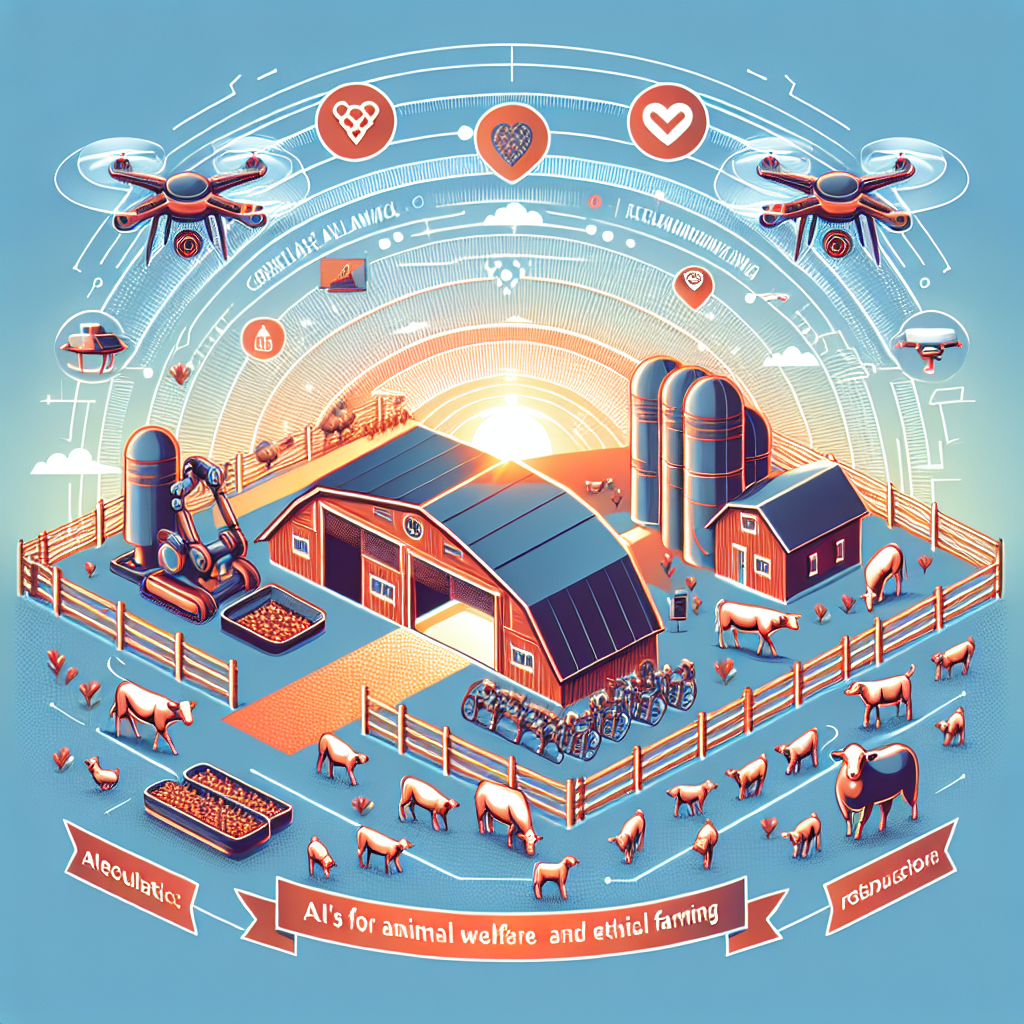Advancements in AI Technology for Animal Welfare and Ethical Farming Practices
In recent years, there has been a growing focus on animal welfare and ethical farming practices within the agriculture industry. With the rise of consumer awareness and demand for more humane treatment of animals, farmers and producers are increasingly turning to technology to help improve the lives of their livestock. One of the most promising technologies in this regard is artificial intelligence (AI), which has the potential to revolutionize the way animals are raised and cared for on farms.
AI technology is being used in a variety of ways to enhance animal welfare and promote ethical farming practices. One of the key areas where AI is making a significant impact is in the monitoring and management of livestock. Through the use of sensors and cameras, AI systems can collect data on the behavior and health of animals in real-time. This data can then be analyzed to identify any potential issues or signs of distress, allowing farmers to take proactive measures to ensure the well-being of their animals.
For example, AI-powered monitoring systems can track the movement patterns of livestock to detect signs of lameness or injury. By alerting farmers to these issues early on, they can provide prompt medical treatment and prevent further suffering. Similarly, AI can be used to monitor the feeding and drinking habits of animals, ensuring that they are receiving the proper nutrition and hydration they need to stay healthy.
Another application of AI in animal welfare is in the field of precision farming. By using AI algorithms to analyze data on soil quality, weather patterns, and crop growth, farmers can optimize their farming practices to minimize environmental impact and maximize the health and well-being of their animals. For example, AI can help farmers determine the best time to plant crops or harvest them, reducing the need for pesticides and other harmful chemicals that can be harmful to both animals and the environment.
AI technology is also being used to improve the efficiency of farming operations, which can lead to better outcomes for both farmers and animals. For example, AI-powered robots can be used to automate tasks such as feeding, cleaning, and monitoring animals, reducing the need for manual labor and minimizing the risk of human error. This can help farmers save time and resources, allowing them to focus on providing better care for their animals.
Overall, advancements in AI technology are providing new opportunities for farmers to enhance animal welfare and promote ethical farming practices. By harnessing the power of AI to monitor, manage, and optimize their operations, farmers can improve the lives of their livestock while also increasing the sustainability and profitability of their businesses.
FAQs:
1. What are some examples of AI technology being used in animal welfare?
– Some examples of AI technology being used in animal welfare include monitoring systems that track the behavior and health of livestock, precision farming algorithms that optimize farming practices, and robotic systems that automate tasks such as feeding and cleaning animals.
2. How can AI technology improve animal welfare on farms?
– AI technology can improve animal welfare on farms by providing real-time monitoring and management of livestock, optimizing farming practices to minimize environmental impact, and automating tasks to improve efficiency and reduce human error.
3. What are the benefits of using AI technology in ethical farming practices?
– The benefits of using AI technology in ethical farming practices include improved animal welfare, increased sustainability, and profitability, and reduced environmental impact.
4. Are there any drawbacks to using AI technology in animal welfare?
– While AI technology has the potential to revolutionize animal welfare on farms, there are some potential drawbacks to consider, such as the high cost of implementing AI systems, the need for specialized training to use the technology effectively, and concerns about data privacy and security.
5. How can farmers and producers get started with implementing AI technology in animal welfare?
– Farmers and producers interested in implementing AI technology in animal welfare can start by researching different AI solutions available on the market, consulting with experts in the field, and investing in training and resources to ensure successful implementation.

